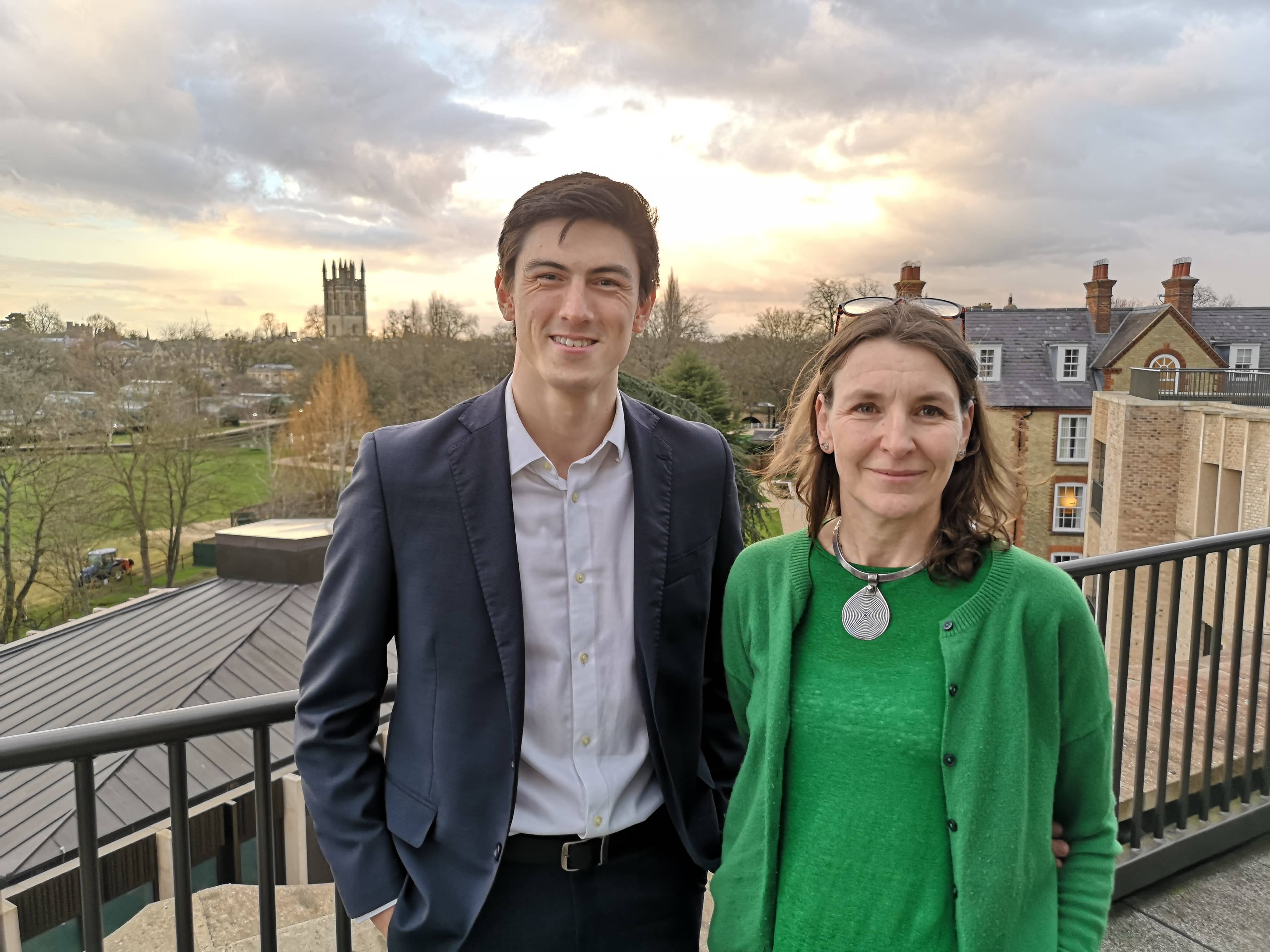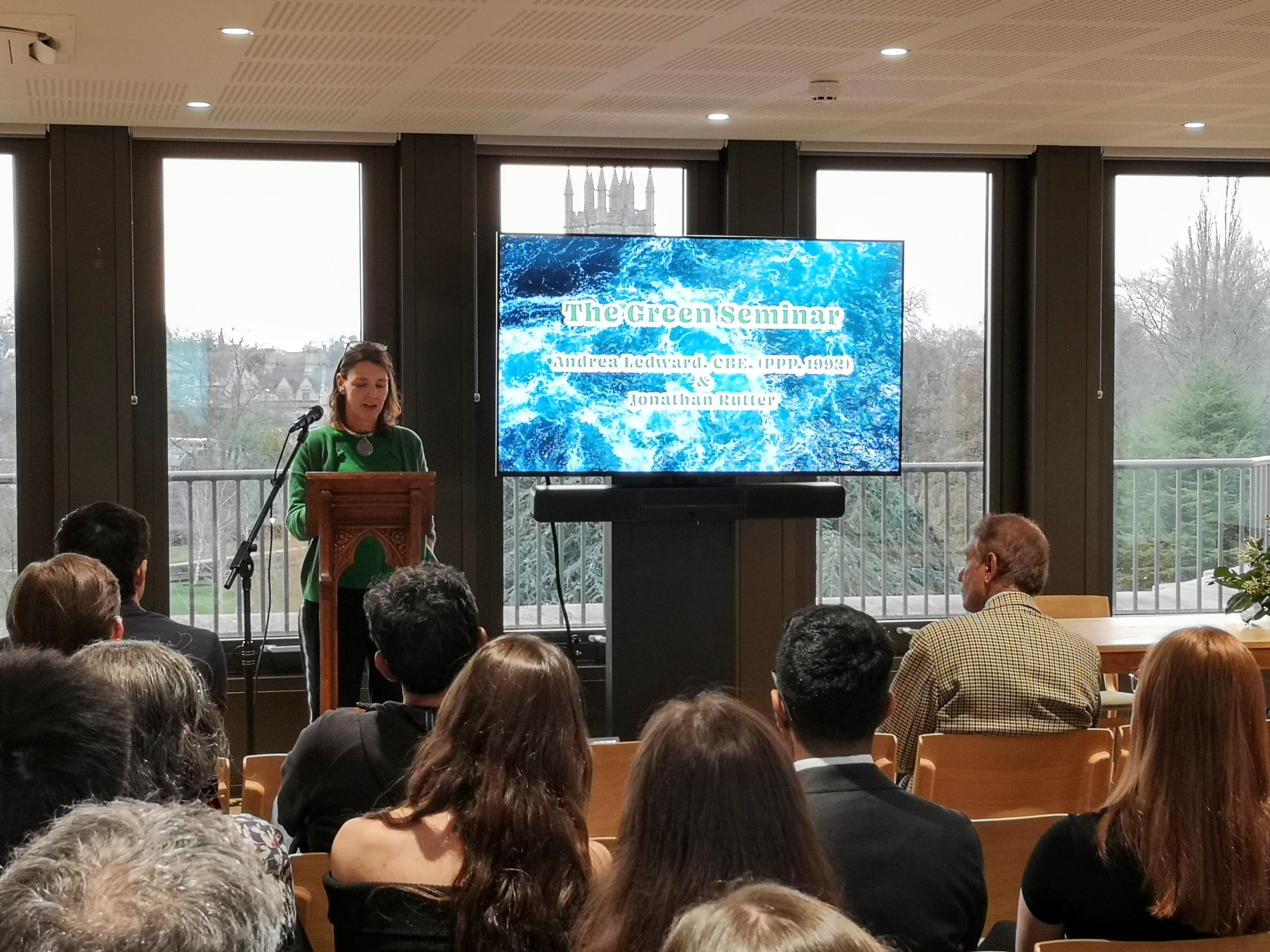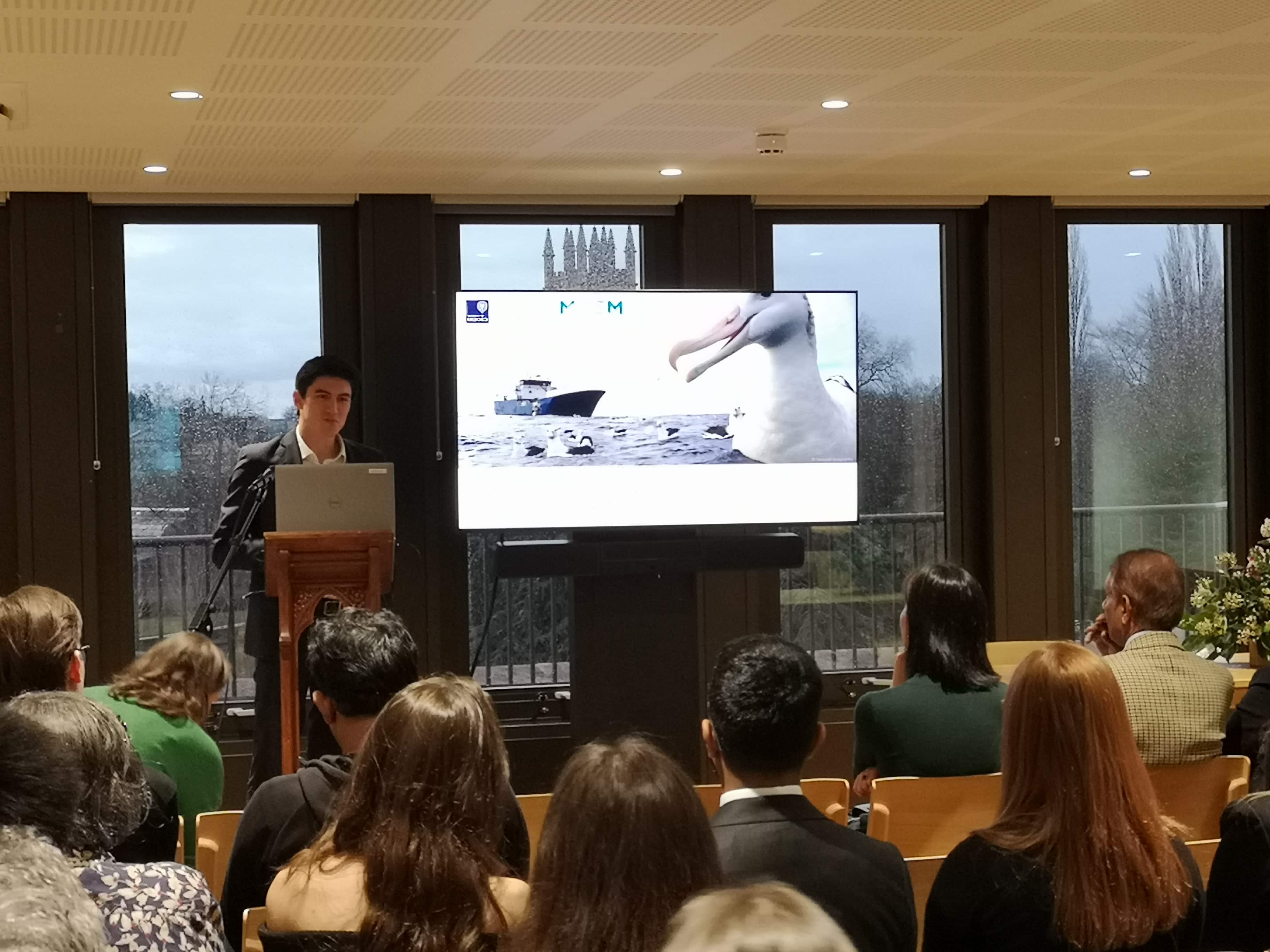
The St Hilda’s College Green Seminar sheds light on pressing environmental challenges. This year, the discussions, led by Andrea Ledward, International Biodiversity and Climate Director at DEFRA, and Jonathan Rutter, a DPhil researcher in Biology, offered both alarming realities and inspiring solutions.
The Global Nature Crisis: Instability, Inequality, and Inspiration
Andrea’s talk focused on the global biodiversity crisis, framing it around three key themes: instability, inequality, and inspiration. She outlined how climate change, deforestation, and species extinction have reached critical tipping points. Highlighting statistics from WWF’s Living Planet Report, she noted that vertebrate populations have declined by 73% since 1970, while human populations have surged by 120%, intensifying ecological destruction.
She emphasised that poorer nations bear the brunt of climate change despite contributing the least to it. Countries in the tropics face severe biodiversity loss, economic instability, and environmental degradation, with Indigenous communities playing a crucial role in conservation.
Despite these challenges, Andrea found optimism in global conservation efforts, citing successful restoration initiatives in Madagascar, Brazil, and Colombia. She also pointed to international negotiations, such as the Global Biodiversity Framework, which aim to redirect financial flows towards environmental protection rather than harmful subsidies. However, she acknowledged that political shifts—particularly in the US—pose new challenges, with environmental language being removed from funding agreements.

Seabirds and Fisheries: The Unseen Impact
Jonathan Rutter’s talk shifted the focus to marine conservation, particularly seabird-fishery interactions. His research highlights the widespread issue of seabird bycatch, where birds are unintentionally caught in fishing gear, leading to massive population declines. Over 600,000 seabirds die annually due to bycatch, with albatrosses among the most affected.
Using innovative tracking methods, Jonathan demonstrated how seabirds interact with fisheries, sometimes following boats for food. His research employs GPS tracking, behavioural analysis, and even microphones attached to birds to detect vessels that lack monitoring systems. This approach helps uncover illegal fishing activities and improve conservation measures.
Jonathan also discussed practical solutions to mitigate bycatch, including bird-scaring lines, weighted hooks, and night-setting techniques. While these solutions exist, implementation remains the biggest hurdle, requiring better enforcement, collaboration with fisheries, and stronger international regulations.

The Q&A session sparked thought-provoking discussions on a number of key issues.
- Reconciling Competing Scientific Evidence: One key debate was around trophy hunting, which some conservationists support as a revenue stream for local communities, while others argue against it on ethical and ecological grounds. Andrea acknowledged the complexity of the issue and the strong differences in opinion between African nations and Western conservation groups.
- The Role of International Agreements: Both speakers agreed that multilateral agreements, while slow and frustrating, remain the best tools for global conservation efforts. Andrea highlighted the growing influence of BRICS nations (Brazil, Russia, India, China, and South Africa) in shaping environmental policies.
- Public Support for Environmental Measures: A question was raised about the backlash against green policies in the US and Europe. Andrea noted that while climate-related policies often face resistance, biodiversity initiatives tend to have broader public support. She stressed the importance of framing conservation efforts in ways that resonate with different political and cultural groups.
- The Challenge of Changing Business Models: Andrea discussed how businesses are recognising the need to invest in sustainable practices, such as water conservation and regenerative agriculture, to ensure long-term profitability.
- The Effectiveness of Marine Protected Areas: Jonathan was asked whether marine protected areas (MPAs) are truly effective in protecting biodiversity. He noted that while MPAs can be beneficial, their effectiveness depends on where they are placed. Protecting a random 30% of the ocean may not be as impactful as strategically safeguarding critical habitats where seabirds and other marine life are most at risk.
Consumer Responsibility and Sustainable Choices: The conversation also touched on the role of consumers in supporting sustainable fisheries. Jonathan explained that while certifications like the Marine Stewardship Council (MSC) label help, they often underestimate the risk of bycatch. He emphasised that consumer choices, while important, should be complemented by corporate and governmental responsibility. - Illegal Fishing and Enforcement Challenges: A particularly insightful discussion revolved around illegal fishing practices and the difficulty of enforcing regulations. Jonathan explained how some fishing vessels intentionally turn off their tracking systems to avoid detection. He highlighted emerging technologies, such as radar detection and seabird behaviour tracking, which could help authorities identify and monitor illegal fishing activities.
- Population Growth and Conservation Challenges: One audience member raised concerns about the tension between economic growth and environmental sustainability, particularly in densely populated nations like Singapore. Andrea responded by emphasising the need for innovative financing mechanisms, such as redirecting harmful subsidies and leveraging private sector investments in conservation.
Both talks underscored the urgency of addressing biodiversity loss and the critical role that individuals, businesses, and governments play in conservation. While the scale of the challenge is daunting, both Andrea and Jonathan offered hope through real-world solutions, emerging technologies, and international cooperation. As Andrea reminded the audience with a quote from anthropologist Margaret Mead:
“Never doubt that a small group of thoughtful and committed citizens can change the world. Indeed, it’s the only thing that ever has.”